7 Most Effective Chatbot Examples
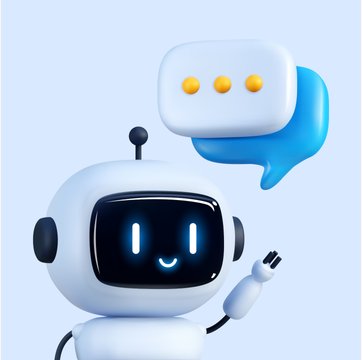
Table of contents
“Hello! How can I assist you today?”
“Hi! I need help tracking my pizza delivery.”
“Sure! Can you provide your 12-digit order number, blood type, and your mother’s maiden name?”
“What? Seriously?”
We’ve all had those moments where interacting with a chatbot feels like a comedy sketch gone wrong. Despite their promise of instant support and around-the-clock availability, chatbots sometimes leave us more confused than assisted.
But here’s the good news: there are chatbots out there that are truly exceptional, offering not only efficient solutions but also delightful user experiences.
In this article, we’ll dive into seven standout examples of support chatbots that have wowed customers and demonstrated significant success. These chatbots aren’t just about spitting out automated responses—they’re about transforming customer service into a more personalized and effective experience.
Table of Contents
- What is a Chatbot?
- Benefits of Using a Chatbot
- Real-life examples of the most effective support chatbots
- Wrapping Up
What is a Chatbot?
A chatbot is a software application designed to simulate human conversation through text or voice interactions. These digital assistants can understand and respond to user queries, often providing instant solutions to common problems.
Chatbots leverage natural language processing (NLP) and machine learning to comprehend and mimic human dialogue, making interactions more seamless and intuitive. Additionally, integrating image classification models can further enhance chatbots by enabling them to process and interpret visual data, expanding their capabilities beyond text and voice interaction.
Did You Know? Chatbots are older than you might expect. The first chatbot, ELIZA, was created in the 1960s. While ELIZA was a simple program that mimicked human conversation, however, today’s chatbots are far more sophisticated, capable of handling complex queries and tasks.
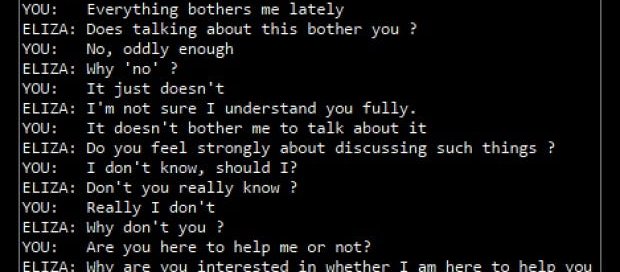
In the customer service industry, chatbots have become invaluable tools. They provide 24/7 support, reduce wait times, and handle a vast number of inquiries simultaneously, significantly enhancing customer satisfaction and operational efficiency.
Benefits of Using a Chatbot
Implementing a chatbot in your customer service strategy offers numerous benefits. Here are some of the key ones:
1. 24/7 Availability: Chatbots can provide round-the-clock support, ensuring customers always have access to assistance, no matter the time of day.
2. Instant Responses: By delivering immediate replies, chatbots can reduce the customer’s wait time, improving the overall service experience.
3. Scalability: Chatbots can handle thousands of inquiries simultaneously, making them perfect for businesses that are looking to scale their customer service.
4. Cost-Effective: By automating routine tasks and queries, chatbots can significantly reduce operational costs.
5. Higher efficiency: Chatbots can automate answering commonly asked questions. This significantly reduces the workload of your support team.
6. Data Collection: They can gather valuable customer data and feedback, helping businesses to understand and improve their services.
These benefits highlight why chatbots have become essential tools in modern customer service, helping businesses to enhance efficiency, improve customer satisfaction, and stay competitive in a digital-first world.
Real-life examples of the most effective support chatbots
Now that we understand what chatbots are and the numerous benefits they bring to customer service, let’s take a look at seven of the most effective support chatbots that have truly stood out. Each of these examples showcase unique features and demonstrate success that sets them apart from the rest.
1. Lemonade’s Maya
Have you ever wished that buying insurance could be as easy and friendly as chatting with a neighbor? I certainly have. Buying insurance can be tricky—hundreds of questions to answer, forms, choosing a plan—the list can be exhausting.
Enter Maya from Lemonade, a chatbot designed to turn the often tedious process of purchasing insurance into a simple, enjoyable experience. Unlike traditional chatbots that can feel mechanical, Maya interacts with a warm, engaging tone, guiding users through every step of the insurance journey.
Maya even helps with filing claims, where customers can simply speak to the camera—without any detailed paperwork. It’s easy, convenient, and quite human—the recipe for a great chatbot.
What makes it stand out: Personalized insurance assistance
Key Features:
1. Conversational Interface: Maya interacts in a friendly, human-like manner.
2. Upselling Capabilities: Recommends additional insurance products based on user needs.
3. Simplified Form Completion: Guides users seamlessly through the insurance application.
4. Instant Policy Issuance: Provides immediate coverage upon completion.
5. 24/7 Accessibility: Always available to assist, ensuring users can get help anytime.
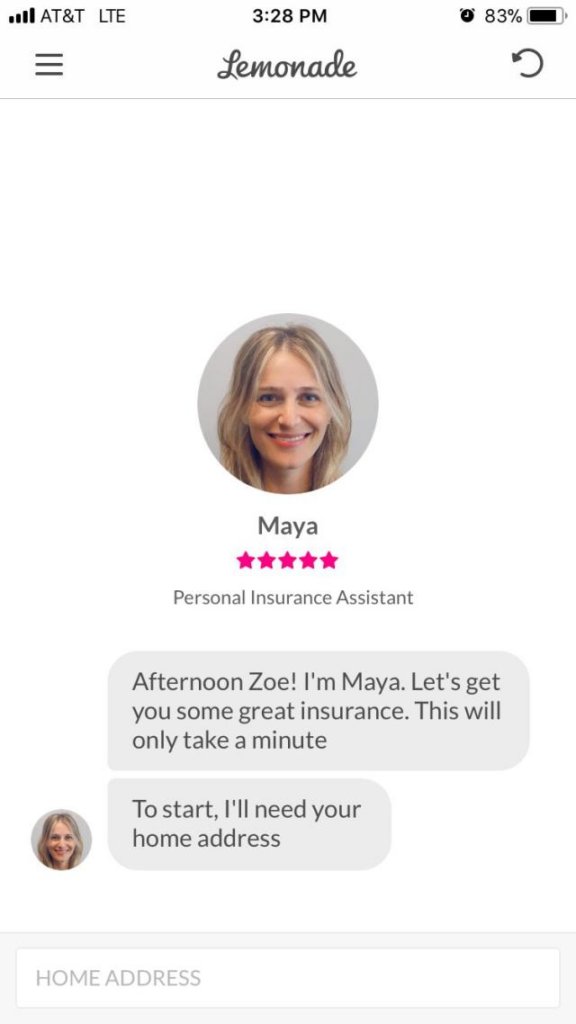
Demonstrated Success: Maya has been a cornerstone of Lemonade’s success, handling 25% of inquiries and contributing to the sale of 1.2 million policies in just three years. This efficiency has significantly improved Lemonade’s customer satisfaction metrics.
2. Uber’s WhatsApp Chatbot
Customer service is all about convenience, and Uber’s WhatsApp Chatbot is a prime example of that. With its chatbot, Uber made it exceptionally easy for their customers to book a ride—it’s as easy as sending a text. Integrating with the world’s most popular messaging app, it allows users to book rides, get fare estimates, and track their drivers—all from WhatsApp.
What makes it stand out: Booking rides via WhatsApp
Key Features:
1. WhatsApp Integration: Uses a familiar platform for ease of use.
2. Instant Ride Booking: Enables quick and effortless ride bookings.
3. Real-time Tracking: Provides live updates on driver location.
4. Fare Estimates: Offers quick fare calculations before booking.
5. 24/7 Support: Ensures assistance is always available.
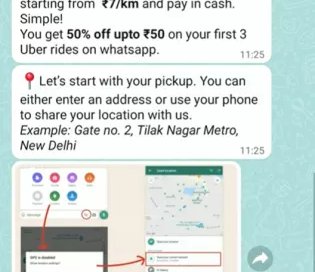
Benefits of this chatbot: Uber’s WhatsApp chatbot has made the task of booking a ride a lot easier. The fact that users can now book a ride without having to switch to the Uber app reflects the convenience of using chatbots smartly.
3. Duolingo’s Chatbot
Who can forget Duolingo’s big green bird that is infamous for (jokingly) threatening its users? Duolingo is famous for its marketing campaigns that are spot-on and resonate with the audience.
But that’s not it. They also do an exceptional job with their chatbot.
Learning a new language can be intimidating, but what if you had a personal tutor available 24/7? Duolingo’s chatbot provides exactly that. Designed to help users practice conversational skills, this chatbot makes language learning both interactive and enjoyable.
What makes it stand out: Interactive language practice
Key Features:
1. Conversational Practice: Engages users in real-life conversations.
2. Multiple Personalities: Offers different tutoring bots to match user preferences.
3. Instant Feedback: Provides corrections and suggestions in real-time.
4. Gamified Learning: Integrates learning with fun challenges and rewards.
5. 24/7 Availability: Allows users to practice anytime anywhere.
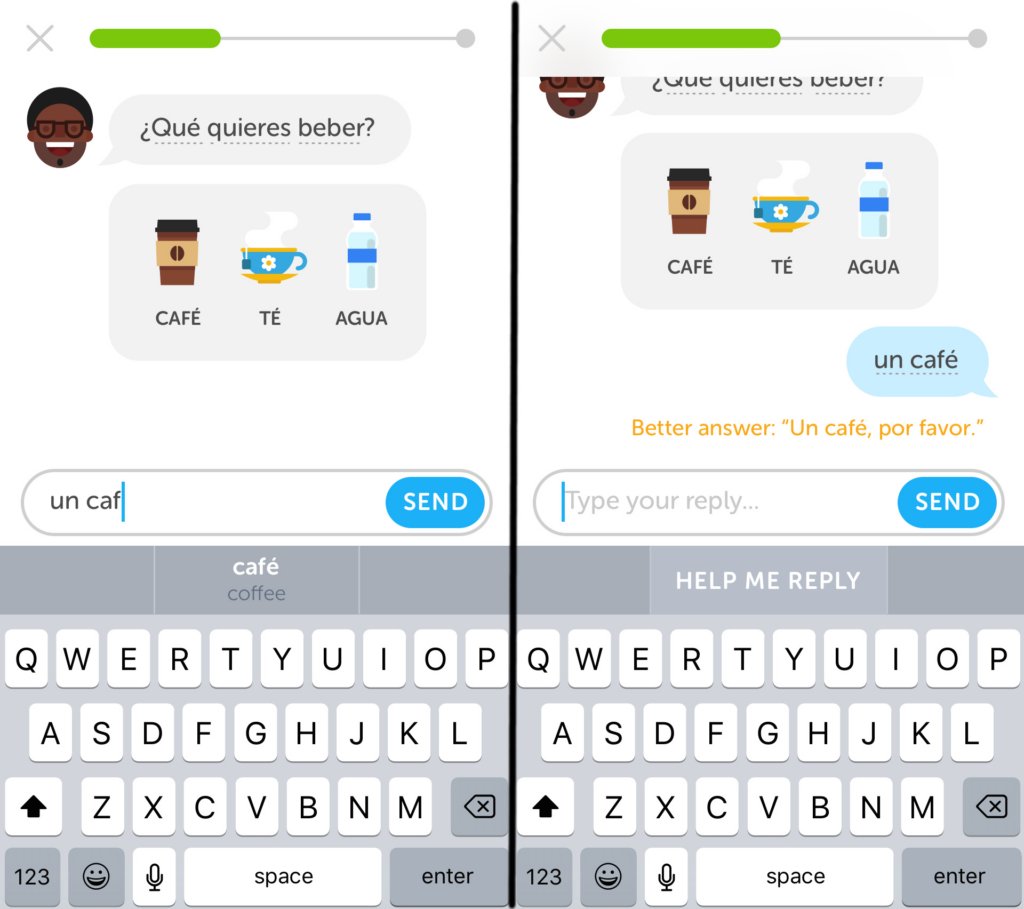
Demonstrated Success: Duolingo’s chatbot has significantly boosted user engagement and retention rates. Users enjoy the interactive and personalized learning experience, leading to an increase in daily active users and contributing to Duolingo’s growth as a leading language-learning platform.
4. Mountain Dew’s DEWBot
Typically, chatbots are only tied to answering questions from customers and prospects. But, what if a chatbot makes a brand more relatable and engaging? If used creatively, it definitely can—and DEWBot proves it.
Created for Mountain Dew’s “Rig Up” campaign on Twitch, DEWBot interacted with users in a fun, engaging way, boosting brand awareness and community involvement.
What makes it stand out: Interactive marketing on Twitch
Key Features:
1. Live Engagement: Interacts with users during live streams.
2. Polls and Feedback: Facilitates real-time audience participation.
3. Interactive Content: Provides live updates and responds to user queries.
4. Community Building: Engages users in brand-related activities.
5. 24/7 Interaction: Maintains engagement beyond live events.
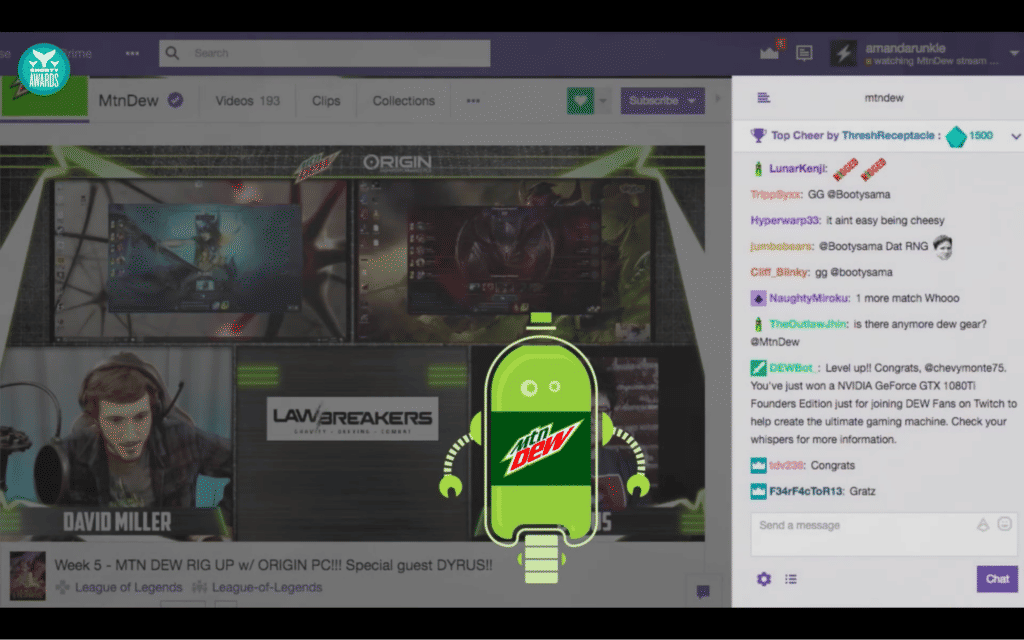
Demonstrated Success: The DEWBot campaign saw a 550% increase in in-stream conversation, significantly enhancing brand engagement. By creating a fun and interactive environment, Mountain Dew was able to drive awareness by successfully connecting with a younger audience.
5. Ozone India’s Support Chatbot
Imagine having a support assistant who never sleeps while being exceptional at their job. At first glance, this may not seem like a big deal. But Ozone India’s chatbot is true to its claims, providing comprehensive support for its extensive product range.
This chatbot handles everything from product inquiries to after-sales support, ensuring users receive timely and accurate assistance. It also helps customers track orders and warranty details—making it a one-stop chatbot for any questions that customers may have.
What makes it stand out: Efficient product support and queries
Key Features:
1. Product Inquiries: Provides detailed information about products.
2. Order Management: Assists with bulk orders and tracking.
3. Technical Support: Helps resolve technical issues quickly.
4. Warranty Information: Offers easy access to warranty details.
5. 24/7 Availability: Ensures continuous support for customers.

Demonstrated Success: Ozone India’s chatbot has significantly improved their customer support efficiency. By reducing wait time and providing accurate responses, the chatbot has enhanced customer satisfaction and loyalty. The automation of routine queries has also allowed human agents to focus on more complex issues.
6. Bank of America’s Erica
Does the idea of “managing your finances” feel daunting? For many of us, the complexity and multitude of tasks can be overwhelming.
Imagine if handling your finances was as simple as sending a text. Enter Erica, Bank of America’s AI-powered chatbot, blending financial guidance with customer support. Erica helps customers manage their banking needs by offering real-time updates on transactions, facilitating bill payments, and providing financial advice—making financial management more straightforward and less stressful.
Erica is a prime example of how chatbots can single-handedly help you reduce customer problems and improve your support metrics—if used correctly.
What makes it stand out: Financial management and customer support
Key Features:
1. Transaction Updates: Provides real-time information on account activities.
2. Bill Payments: Facilitates easy and quick bill payments.
3. Financial Advice: Offers personalized tips for managing finances.
4. Fraud Detection: Alerts users to potential fraudulent activities.
5. 24/7 Support: Ensures customers can get assistance anytime.
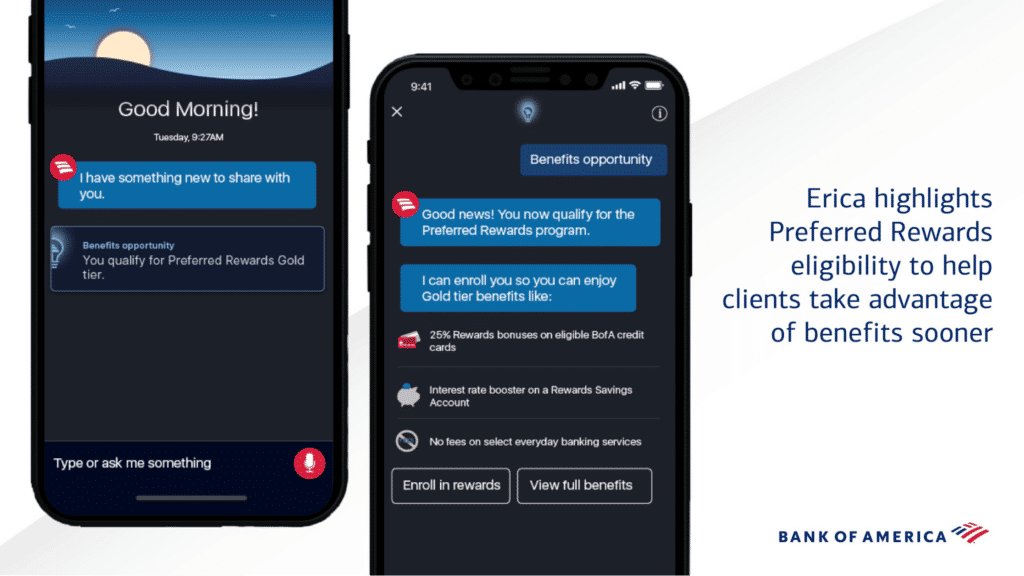
Demonstrated Success: Erica has handled millions of customer interactions, significantly improving response time and customer satisfaction. In 2023, it crossed 1.5 Billion interactions, with over 10 million hours spent engaging with customers. By offering efficient, personalized support, Erica has helped Bank of America enhance its customer service capabilities and build stronger customer relationships.
7. Sephora’s Virtual Artist
What’s the recipe for exceptional customer service? It happens when brands look at the entire customer journey, underline the inconvenient gaps, and find solutions for them.
For Sephora, the target audience is makeup lovers. A common problem in this industry has been that makeup products need to be tested before they are purchased. Be it matching a foundation to your complexion or testing out a lipstick shade.
So, what if people could simply see what they would look like with a product on—right from their homes? And not just that, what if you could even get tutorials to apply the products once you buy them?
Sephora’s Virtual Artist makes this possible. This innovative chatbot uses augmented reality to allow users to virtually try on different makeup products, providing a unique and engaging shopping experience—without the need to step out of the house.
What makes it stand out: Augmented reality makeup trials
Key Features:
1. AR Technology: Enables virtual try-ons of makeup products.
2. Personalized Recommendations: Suggests products based on user preferences.
3. Tutorials and Tips: Offers makeup tutorials and beauty tips.
4. Product Availability: Provides information on product availability and pricing.
5. 24/7 Accessibility: Allows users to explore and try products anytime.

Demonstrated Success: Sephora’s Virtual Artist has been a game-changer in the beauty industry. With over 8.5 million visits to the chatbot since its release, it has significantly driven customer engagement. Users appreciate the personalized and interactive shopping experience, as this makes it easier for them to find specific products.
Wrapping Up
Chatbots have come a long way from their early days of simple, scripted responses. Today, they are transforming customer service by providing instant, personalized, and efficient support. The examples we’ve explored in this article highlight how innovative chatbot technology can enhance customer experiences, improve operational efficiency, and even drive business success.
In my opinion, the future of customer service lies in the continued evolution of these intelligent assistants. As technology advances, we can expect chatbots to become even more sophisticated, capable of handling more complex interactions and providing even greater value to both businesses and customers.
So, whether you’re looking to enhance your customer service strategy or simply curious about the latest trends, keep an eye on these remarkable chatbot innovations—they’re leading the way to a more connected and efficient future.

































